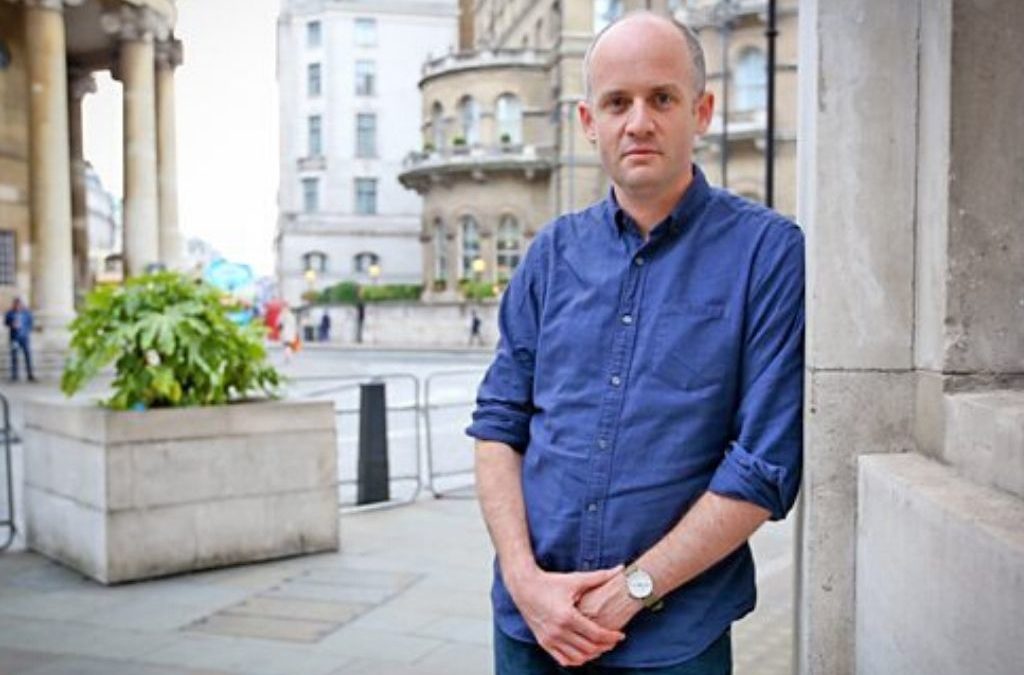Journalist and writer Oliver Burkeman says that researching writing habits has made him an ‘amateur expert’ on how to schedule creativity into an over busy and overwhelmed life. He shared his top advice on how to get creative work done while also being kind to yourself.
Becoming an amateur expert
There are few things Oliver Burkeman likes more than chatting about writing habits – he admits it’s certainly more fun than doing the writing that’s his job and hobby. He’s in the enviable position to have built a career where he gets to research, test out and share his personal take on psychology, productivity, happiness and creativity in a weekly column for The Guardian and his books The Antidote and Help!
He said “I’m an expert in a very amateur way – I’m vacuuming up all the research and testing it out with a sample size of exactly one. I stumble through in trial and error, so to some extent I can say I have figured some things out.”
This approach has won him many thousands of readers in his homeland of England and across the Atlantic in America where he now lives.
Despite his modesty, Oliver has years of experience working as a journalist, writing to deadline and putting work out into the world to be read and judged by others. He shares some of what he has learnt from his experiments with writing.
Oliver Burkeman’s guide to productive and happy writing
1. There’s no secret!
One of the biggest barriers to getting it done is believing that there is a big secret. We fall into this trap because something matters so much to us, so you wait until you’ve cleared the decks, got all the other stuff out of the way, and have plenty of time. Though some of that is true, it can be taken too far, to the point where you’re constantly postponing precisely the thing you don’t want to postpone and spending all your time doing all the things that you probably could postpone.
2. Find the time, schedule and protect it
I’m a very big fan of scheduling – deciding in advance when you are going to do things. There’s a bizarre power that comes from having made the plan in advance rather than trusting your random moods. Do exercises in time mapping to figure out where in the week you might have time, and keep track of all the stuff that isn’t creative work so you don’t bombard your consciousness too much while you are trying to write. It’s all about trying to protect moderately long blocks of time in the week – a ninety minute period here or there to slide into the right state of focus.
>> Read more: Finding time to write: the time boxer
3. Don’t wait for the muse
There’s that famous Chuck Close quote “Inspiration is just for amateurs. The rest of us just show up and get to work,” and it’s so true – you don’t need to get all mystical about the muse, and being in the right mind-set, you just need to go to your desk and sit down and do it.
“Don’t get all mystical about the muse – you just need to go to your desk and sit down and do it.” Oliver Burkeman
4. But, don’t be mean to yourself
There is a very fine line between buckling down and beating yourself up. You don’t need to drive yourself in a militaristic way where you are forcing yourself to sit down at 8am and write in an aggressive stance toward yourself. You can beat yourself up too much – sometimes a day just isn’t going to work. In those cases you have to be OK with that otherwise you dig yourself in deeper and then the next day isn’t going to be any good either. It’s a question of the fit between what you are demanding of yourself and what you are really committed to doing. My advice is to treat yourself somewhere between a very fragile machine and a tiny child.
5. If you fail, learn from it
The really important thing about habits and habit change is the thing you are training is not the behaviour but the failure of the behaviour. It’s getting back on the horse when you’ve fallen off rather than never falling off.
6. Develop a system that works for you
The quality, if it emerges at all, is going to emerge over time, in aggregate, as a result of doing 500 words a day or doing 3 hours a day, or whatever it is. The basic idea is to think about:
- Process instead of outcome.
- Near term instead of long term.
- Quantity instead of quality.
>> Read more: Writing routines: Why systems beat willpower – every time
7. Find your own batting average
I’d go mad if I tried to make every single one of my columns perfectly brilliant and I’ll almost certainly fail apart from anything else. You can’t ever hope that every single one is going to be brilliant; instead look for the cumulative effect and hope for the average quality over time.
8. Take inspiration from other writers
Writers are the same throughout history; their eccentricities and obstacles are universal and it gives me a great fellow feeling. They can be a great source of the right kind of inspiration that says you don’t need to be in touch with some kind of higher creative force and feel in exactly the right kind of mood.
9. Don’t fall in love with being a writer
It can be a huge distraction when people fall in love with the idea of the writer’s life far more than actually writing. It is absurd to think that by adopting Kierkegaard’s daily routine that you are going to enhance your work and make more like these great geniuses.
10. Experiment, try different writing habits and techniques
Don’t feel bad about changing all your rituals every few months. I don’t think that there is one solution to everything. If following the habits of Phillip Roth for a few months gets you through some pages then that’s great. Then maybe you need to switch to the habits of Charles Dickens. If it’s fun and it keeps you interested and engaged then I don’t see the harm in it.
>> Read more: A guide to tracking your writing – why noticing how you write will transform your practice
***
Oliver Burkeman is a Guardian writer based in New York. Read his column here. He is the author of The Antidote: Happiness for People Who Can’t Stand Positive Thinking.



